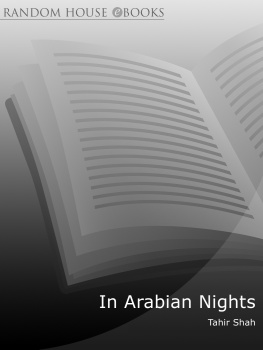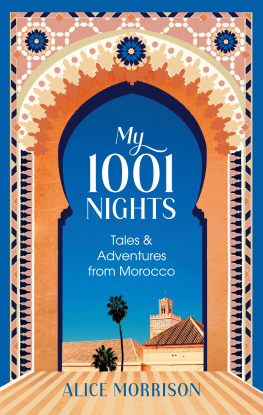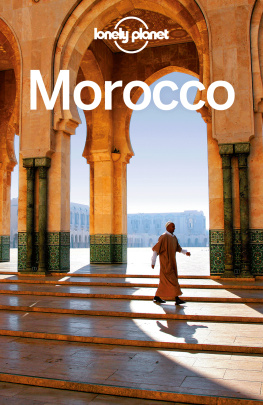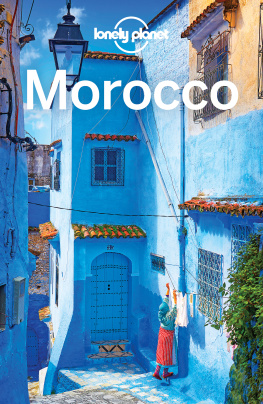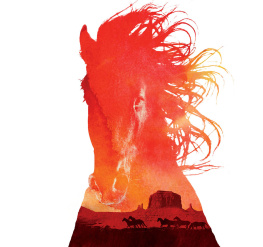Richard Hamilton has worked for the BBC World Service as a broadcast journalist since 1998, and has been a correspondent in Morocco, South Africa and Madagascar. He also reports for BBC Television, radio and online. While living in Morocco, he co-authored the Time Out Guide to Marrakech and has written throughout his career for magazines and newspapers such as Conde Nast Traveller and The Cape Times . He has an MA in African Studies from SOAS.
The Last Storytellers succeeds brilliantly in delving down through the endless overlapping layers of Marrakech life, to reveal the extraordinary underbelly, an ancient cultural bedrock built on stories and storytelling. Through a shrewd perception of a society that can seem nothing less than baffling to the occidental mind, Richard Hamilton has triumphed where many before him have failed.
Tahir Shah, author of The Caliphs House and In Arabian Nights
This is a wonderfully vivid and striking collection of stories which I heartily recommend.
Fergal Keane, BBC correspondent and author of Season of Blood
Richard Hamilton has captured a rich, vibrant yet disappearing world. He has listened, learned and been captivated by the storytellers of Morocco, retelling some of that countrys charming and spellbinding traditional stories. The tales are amusing, whimsical and leave you spellbound that you are reading stories which may soon disappear. Richard Hamilton has paid a fine and lasting tribute to Moroccos storytellers by writing down their stories for posterity ... and our enjoyment.
Rageh Omaar, Middle East correspondent for Al Jazeera and author of Revolution Day
In collecting these tales of wisdom, wonder, adventure and humour from the small and ageing group of Moroccan storytellers, Richard Hamilton has not only offered entertainment to his readers but he has also carried out a valuable form of rescue archaeology within the vanishing world of professional storytelling.
Robert Irwin, author of The Arabian Nights: A Companion
Published in 2011 by I.B.Tauris & Co Ltd .Reprinte d 2012
6 Salem Road, London W2 4BU
175 Fifth Avenue, New York NY 10010
www.ibtauris.com
Distributed in the United States and Canada
Exclusively by Palgrave Macmillan
175 Fifth Avenue, New York NY 10010
Copyright 2011, Richard Hamilton
Foreword copyright 2011, Barnaby Rogerson
The right of Richard Hamilton to be identified as the author of this work has been asserted by him in accordance with the Copyright, Designs and Patents Act 1988.
All rights reserved. Except for brief quotations in a review, this book, or any part thereof, may not be reproduced, stored in or introduced into a retrieval system, or transmitted, in any form or by any means, electronic, mechanical, photocopying, recording or otherwise, without the prior written permission of the publisher.
ISBN: 978 1 84885 491 8
eISBN 978 0 85773 059 6
A full CIP record for this book is available from the British Library
A full CIP record is available from the Library of Congress
Library of Congress Catalog Card Number: available
To my father, Tom Hamilton,
who loved Marrakech

CONTENTS

Barnaby Rogerson
Moulay Mohamed El Jabri
Abderrahim El Makkouri
Moulay Mohamed El Jabri
Ahmed Temiicha
Moulay Mohamed El Jabri
Ahmed Temiicha
Mohamed Bariz
Mohamed Bariz
Mustapha Khal Layoun
Mustapha Khal Layoun
Abderrahim El Makkouri
Abderrahim El Makkouri
Ahmed Temiicha
Moulay Mohamed El Jabri
Ahmed Temiicha
Ahmed Temiicha
Mustapha Khal Layoun
Mustapha Khal Layoun
Mustapha Khal Layoun
Mustapha Khal Layoun
Abderrahim El Makkouri
Moulay Mohamed El Jabri
Abderrahim El Makkouri
Abderrahim El Makkouri
Mustapha Khal Layoun
Moulay Mohamed El Jabri
Moulay Mohamed El Jabri
Ahmed Temiicha
Mustapha Khal Layoun
Moulay Mohamed El Jabri
Abderrahim El Makkouri
Ahmed Temiicha
Moulay Mohamed El Jabri
Moulay Mohamed El Jabri
Abderrahim El Makkouri
Ahmed Temiicha
Abderrahim El Makkouri

FOREWORD

Circles in the Jemaa el Fna
Barnaby Rogerson
To this day, no one really knows how the city of Marrakech won its name of Marrakech, nor why the scruffy piazza at the heart of the city is called the Jemaa el Fna.
The city first arose in 1059 as the advanced base of an empire of purified Islam forged by blue-veiled knights from the Western Sahara. For many years, it remained a circular embankment topped with thorn bushes, one of the many military marching camps built during the era of Almoravid conquest. At about the time when Duke William of Normandy was conquering Anglo-Saxon England, this camp was selected to be the regional military headquarters, for the Almoravids were having trouble with a schismatic confederation of Berber Muslims deeply entrenched in the coastal provinces. At this point, the first permanent structure was built, the Ksar el Hajar, the watch-tower of stone, which overlooked the tents of the garrison army and their corrals of camels and stables of horses. This was when it first became known as Marrakech, which seems to derive from the local slang for to cross over and to hide. Some storytellers like to say that right from the start Marrakech was renowned for the audacity of its thieves, who would scale the garrison defences to get at the rich herds of cavalry horses within, though a more dignified version is that the name derives from the grand strategy of the Almoravid army, which was to cross over the barrier of the High Atlas Mountains from their Saharan homeland to make a secure base in central Morocco.
The Almoravid Emir, Abu Bakr, preferred to keep his own headquarters in the Saharan region, south of the Atlas Mountains. But he made certain that his pious and promising young cousin, Youssef ibn Tachfine, was placed in command of the Marrakech base camp. Youssef proved himself to be a brilliant general, not only subduing all of central and northern Morocco, but eventually he even took his legions across the Mediterranean to defeat the Christian Castilians at the Battle of Zallaqa. After the death of Abu Bakr in 1087, Youssef ibn Tachfine was his natural successor, ruling over an empire that now stretched from the banks of the Niger to the foothills of the Pyrenees. Marrakech was well placed to act as a centre for such a vast domain, and in the reign of Youssefs son Ali, a great circuit of walls was built to guard the magnificent series of palaces, storehouses and public buildings.
All this, even the great mosque that they built, was flattened by the next dynasty, the Almohads, who were ferociously jealous of the achievements of their predecessors. It was the Almohads who built the great Koutoubia mosque, whose minaret still dominates the skyline of Marrakech. An earlier attempt (whose ruins can still be seen beside the Koutoubia) was abandoned, either because it was deemed unpropitious or wrongly aligned to Mecca. It may be that it was this neglected predecessor which gave birth to the name of the square, Jemaa el Fna, the mosque that came to nothing. Certainly the earliest accounts of Marrakech mention that storytellers used to gather outside the walls of the Koutoubia. Or the name might refer to a mosque that was never completed by a Shereefian dynasty (known disrespectfully as the Saadians) that ruled over Morocco in the 16th century. This abandoned site was cleared on the orders of Sultan Moulay Ismail in the 17th century, and a market square was constructed for the use of the people. Other legends about the origins of the name Jemaa el Fna play with different translations of the Arabic, which allow them to imagine the place as a bewitched old cemetery, the Assembly of the Dead, or the site of the future Mosque of Eternity, which is said to await the coming of the Mahdi at the end of time. What seems certain is that for about a thousand years there have been storytellers in this place, attended by circles of amused, shocked and titillated listeners.



 CONTENTS
CONTENTS 
 FOREWORD
FOREWORD 


